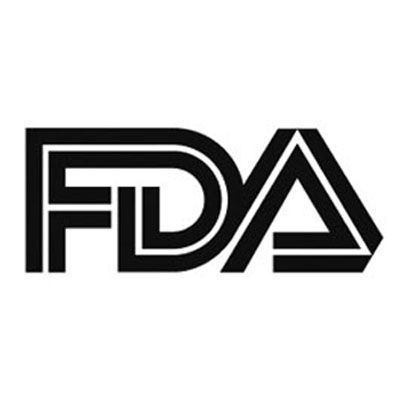FDA Grants Priority Review to Mosunetuzumab for Relapsed/Refractory Follicular Lymphoma
The FDA has granted priority review to an approval application for mosunetuzumab for the treatment of patients with relapsed or refractory follicular lymphoma.

The FDA has accepted the submission of a biologics license application for mosunetuzumab (Lunsumio) and granted it priority review for the treatment of adults with relapsed or refractory (R/R) follicular lymphoma (FL) who have received at least 2 prior systemic therapies, according to a press release by Roche.1
The application is supported by data from the pivotal phase 1/2 GO29781 study (NCT02500407), in which mosunetuzumab monotherapy or mosunetuzumab with atezolizumab (Tecentriq) is being administered to patients with non-Hodgkin lymphoma (NHL) and chronic lymphocytic leukemia (CLL). According to results reported, treatment with mosunetuzumab achieved a 57% complete response (CR) rate in patients (95% CI, 49%-70%). Responses were notably maintained for at least 18 months. At a median follow-up of 18.3 months, the CR rate climbed to 50% among the 90 patients assessed. The objective response rate (ORR) observed in the study was 80%, and the median duration of response (DOR) was 22.8 months (95% CI, 9.7 to not estimable).
In terms of safety, cytokine release syndrome (CRS) in 39% of patients was the most common adverse event (AE). Cases of CRS were grade 1 in 25.6% of patients, grade 2 in 14%, grade 3 in 2.3%, and grade 4 in 0.5%. The other commonly observed AEs in the study were fatigue, headache, neutropenia, fever, and hypophosphatasemia. Treatment was administered without mandatory hospitalization, which collectively occurred in > 20% of patients.
The GO29781 trial is a multicenter, open-label, dose-escalation and expansion protocol that is evaluating the efficacy, safety, and pharmacokinetics of mosunetuzumab. The primary end point of the study is the CR rate by independent review facility, and the secondary end points include ORR, DOR, progression-free survival, safety, and tolerability.2
The study will enroll 836 patients with NHL or CLL to investigate mosunetuzumab. To be eligible for inclusion, patients must have an ECOG performance status of 0 or 1, and adequate hepatic, hematologic, and renal function. The study excludes patients who are pregnant or lactating, have autoimmune disease with some exceptions, history of central nervous system lymphoma or CNS disease, significant cardiovascular or pulmonary disease, Hepatitis B or C, or human immunodeficiency virus.
Patients treated with a monoclonal antibody, radioimmunoconjugate, antibody-drug conjugate, chemotherapy, or another investigational anti-cancer agent within 4 weeks prior to receiving the study drug are not permitted. The study also excludes those previously treated with radiotherapy within 2 weeks, a systemic immunosuppressive medication within 2 weeks autologous stem cell transplant within 100 days, a live attenuated vaccine within 4 weeks, and chimeric antigen receptor T-cell therapy within 30 days.
“New therapeutic options are needed for follicular lymphoma, which often relapses after initial therapy and becomes increasingly difficult to treat each time it returns. Clinical trial results have demonstrated durable responses with Lunsumio in advanced follicular lymphoma, representing a step toward shifting the treatment paradigm,” said Levi Garraway, MD, PhD, the chief medical officer and head of Global Product Development at Roche, in a press release. “Since Lunsumio does not require the collection or genetic modification of patient cells, it could become an effective, fixed-duration outpatient option without the barriers of traveling to a major academic center.”
REFERENCE:
1. FDA grants priority review to Roche’s Lunsumio for people with relapsed or refractory follicular lymphoma. News release. Roche. July 6, 2022. Accessed July 6, 2022. https://bit.ly/3AwiEIT
2. A safety, efficacy and pharmacokinetic study of BTCT4465A (mosunetuzumab) as a single agent and combined with atezolizumab in non-Hodgkin's lymphoma (NHL) and chronic lymphocytic leukemia (CLL). Clinicaltrials.gov. Updated June 13, 2022. Accessed July 6, 2022.
Examining the Non-Hodgkin Lymphoma Treatment Paradigm
July 15th 2022In season 3, episode 6 of Targeted Talks, Yazan Samhouri, MD, discusses the exciting new agents for the treatment of non-Hodgkin lymphoma, the clinical trials that support their use, and hopes for the future of treatment.
Listen
Does Odronextamab Show Hope in FL and DLBCL Despite Regulatory Hurdles?
November 5th 2024Despite regulatory challenges from the FDA, odronextamab has received European approval for the treatment of patients with relapsed/refractory follicular lymphoma or diffuse large B-cell lymphoma following 2 prior treatments.
Read More







